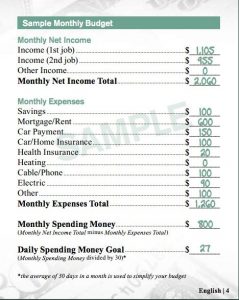Oligarchy Has Arrived. Congress Must Take Notice — and Act!
This is a guest post from our friend Bob Lord, who you may recall from previous guest posts. This was originally published a few days ago at Inequality.org – bmaz
The United States is experiencing a level of wealth inequality not seen since the original Gilded Age. This yawning gap between rich and poor has unfolded right out in the open, in full public view and with the support of both political parties.
A malignant class of modern robber barons has amassed unthinkably large fortunes. These wealthy have catastrophically impacted our politics. They have weaponized their wealth to co-opt, corrupt, and choke off representative democracy. They have purchased members of Congress and justices of the Supreme Court. They have manipulated their newfound political power to amass ever-larger fortunes.
The result? We can sum that up with a word usually associated with nations like Russia: oligarchy. Unless Congress takes action, inequality — and the instability inequality invariably produces — will only intensify.
The Patriotic Millionaires have been sounding out the alarm, over recent years, on inequality and oligarchy. More than most, our members — all men and women of substantial means — understand just how much wealth can buy. Wealth can even turn tax systems toxic.
In well-functioning democracies, tax systems serve as a firewall against undue wealth accumulation. By that yardstick, our contemporary U.S. tax system has failed spectacularly. Those of us in Patriotic Millionaires have witnessed that failure first-hand. Our nation’s current tax practices allow and even encourage obscene fortunes to metastasize while saddling working people with all the costs of that metastasizing. Years of this approach to taxation have hollowed out our middle class and our democracy.
Congress can change all that. Enter the OLIGARCH — Oppose Limitless Inequality Growth and Reverse Community Harms — Act. The architects of this legislation, led by Representatives Barbara Lee (CA-12) and Summer Lee (PA-12), have crafted a visionary approach to combat the existential threat to democracy we all now face. The OLIGARCH Act offers a powerful mechanism that can break the vicious cycle of unchecked wealth accumulation we now find ourselves trapped inside. That mechanism: a wealth tax tied directly to our level of inequality.
Enacting the OLIGARCH Act would create a dynamic tax structure that quickly responds to changes in our distribution of national wealth. The OLIGARCH Act’s elegantly straightforward solution builds upon a set of tax rates that escalate as a wealthy taxpayer’s wealth escalates:
- A 2 percent annual tax on wealth between 1,000 and 10,000 times the median household wealth.
- A 4 percent tax on wealth between 10,000 and 100,000 times the median household wealth.
- A 6 percent tax on wealth between 100,000 and 1,000,000 times the median household wealth.
- An 8 percent tax on wealth exceeding 1,000,000 times the median household wealth.
As inequality swells, in other words, the wealth tax would intensify, in the process acting as both a deterrent to wealth concentration and an antidote to it. As inequality recedes, our economic playing field would become more level. All of us would find ourselves better situated to flourish.
The OLIGARCH Act legislation also recognizes our fundamental need to counter tax evasion among the wealthiest households. By mandating a minimum 30 percent audit rate on ultra-rich households and instituting penalties for significant valuation understatements, the OLIGARCH Act would fortify our nation’s capacity to shut down tax manipulation and evasion.
We’ve reached a tipping point in our nation today. Extreme wealth is begetting extreme power, in turn begetting even more extreme wealth. The resulting stranglehold our richest hold over our democratic institutions has led to a government that caters to billionaires while working citizens struggle to make their voices heard. This imbalance doesn’t just weaken the integrity of our democracy. This imbalance emboldens extremist ideologies that thrive whenever masses of people become politically disillusioned.
We face a stark choice. Will we allow a handful of individuals to wield their wealth like a weapon against our nation’s bedrock principles? Or will we rise to the occasion, defend our democracy, and reaffirm our commitment to a society that offers real opportunity and disperses power — instead of letting that power concentrate among a fabulously wealthy few?
Those of us working with Patriotic Millionaires see the OLIGARCH Act as more than just a piece of legislation. We see it as a statement of purpose, a declaration that the American people will not stand idly by and watch the principles we hold dear erode away. We see the OLIGARCH Act as a call to action that asks each and every one of us to join the chorus demanding change. By urging our congressional representatives to co-sponsor and pass this transformative legislation, we pave the way for a future where democratic capitalism thrives, inequality recedes, and the American way of life endures.
Safeguarding our democracy, today more than ever, requires us to address the catastrophic — and rapidly growing — inequality that’s empowering a new aristocratic ruling class. To do anything less than challenge that class would leave our democratic institutions to the whims of America’s oligarchs. The stakes run that high.
Bob Lord, a veteran tax attorney and Institute for Policy Studies associate fellow, is currently serving as a senior advisor on tax policy for Patriotic Millionaires.


![[Photo: STIL via Unsplash]](https://www.emptywheel.net/wp-content/uploads/2017/08/Money_STIL-Unsplash_mod-1500x1000.jpg)

![[source: Google Finance]](https://www.emptywheel.net/wp-content/uploads/2017/08/Screenshot_GoogleFin-TrumpNK_09AUG2017-300x163.jpg)


